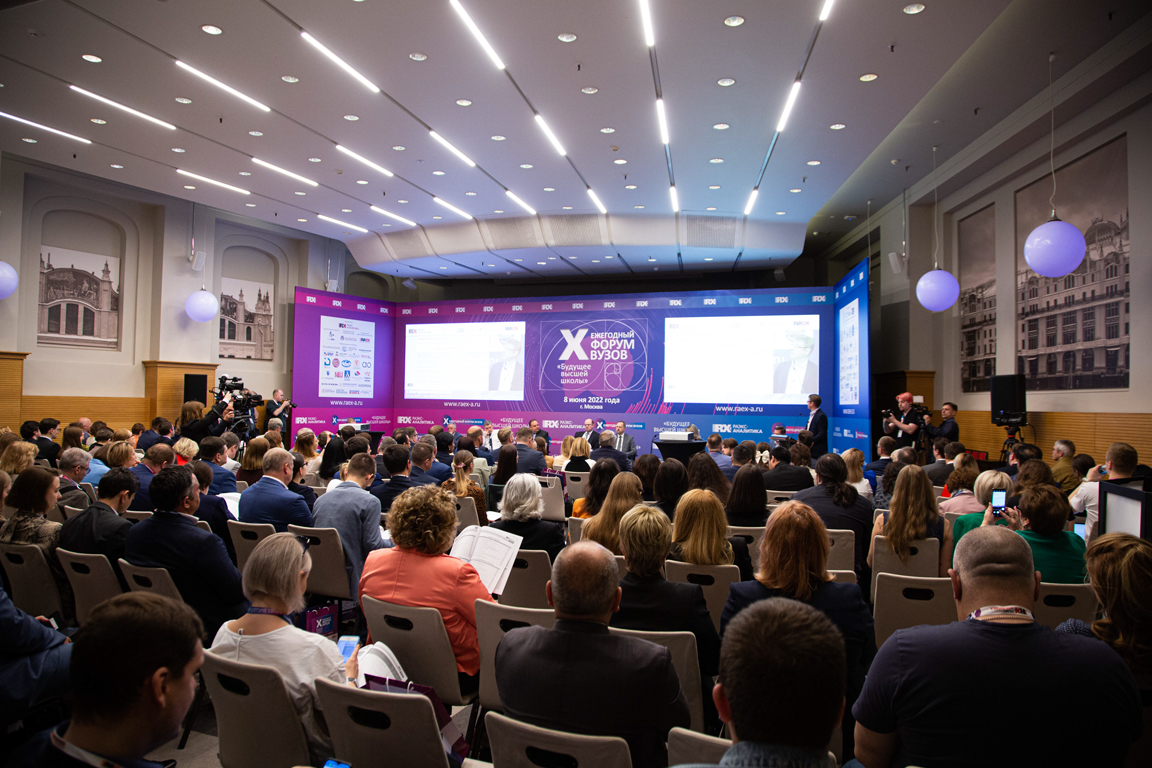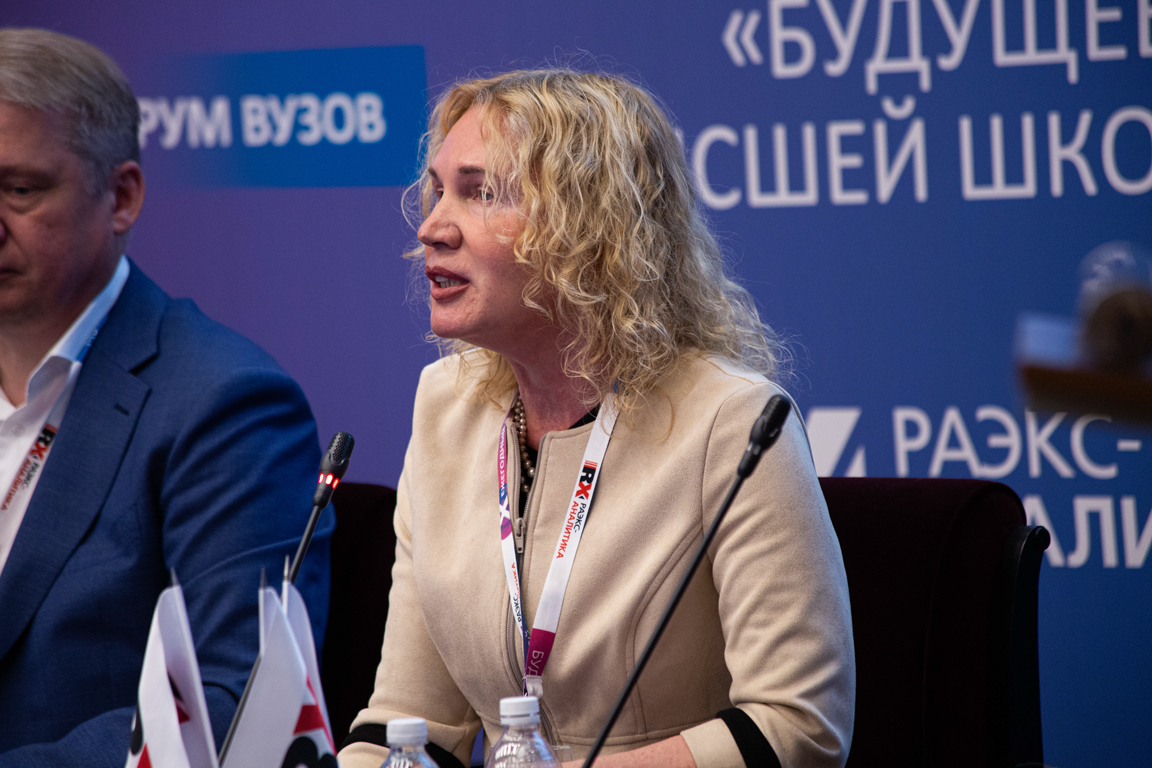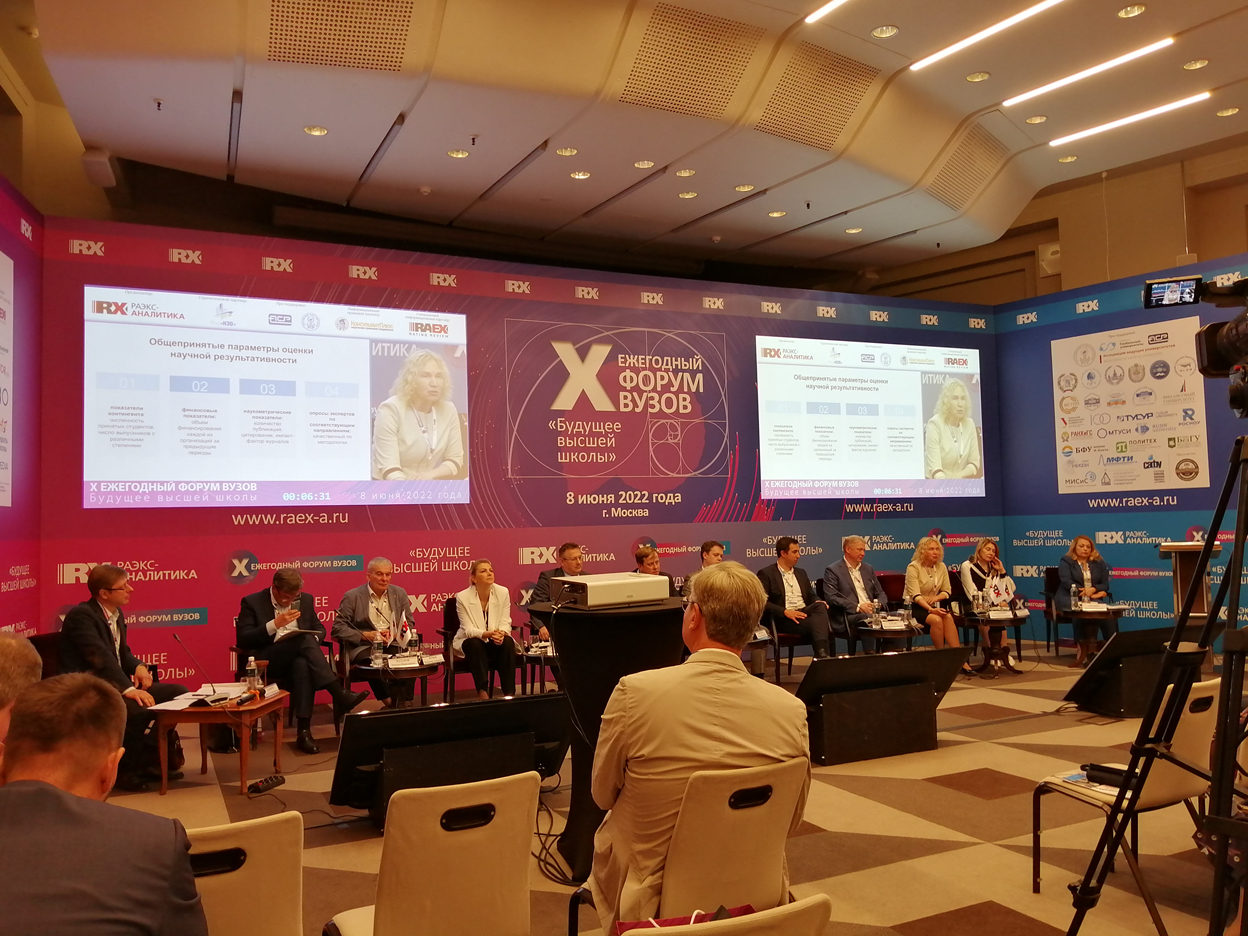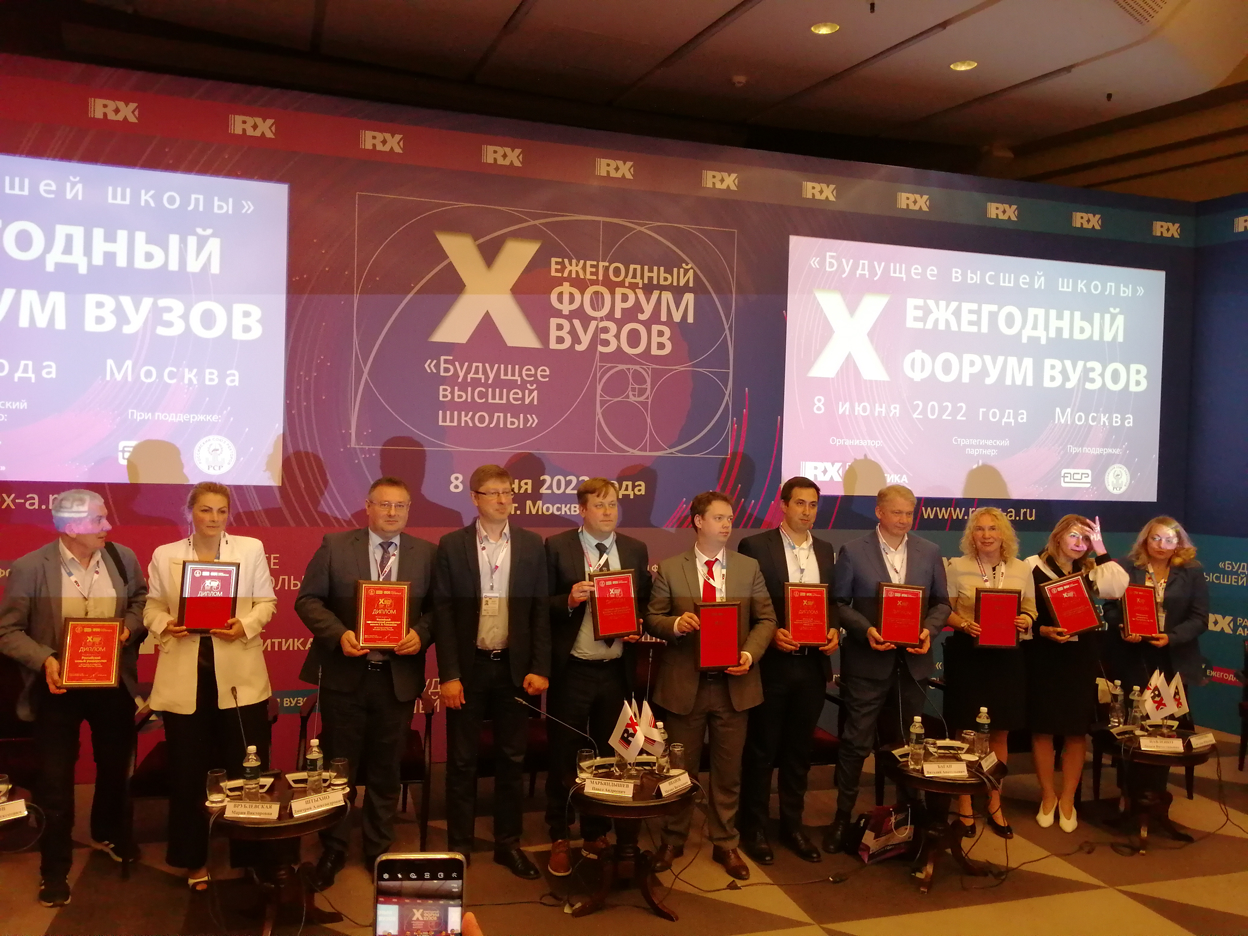On June 8, Moscow hosted the 10th annual Forum of Leading Russian Universities "The Future of Higher Education", dedicated to the discussion of the tasks and tools for increasing the competitiveness of Russian universities, taking into account changes in the national and global agendas.
On June 8, Moscow hosted the 10th annual Forum of Leading Russian Universities "The Future of Higher Education", dedicated to the discussion of the tasks and tools for increasing the competitiveness of Russian universities, taking into account changes in the national and global agendas.
The Forum, organized by Russia's largest ratings agency RAEX, was attended by rectors of leading Russian universities, representatives of the Ministry of Education and Science, embassies of friendly countries, employers and experts in the field of education, more than 500 participants in total.
RSUH was represented by a delegation consisting of First Vice-Rector Olga Pavlenko, Dr. Alexander Medved, Director of the Center for Ratings, Monitoring and Statistics, and Dr. Denis Vakarchuk, Leading Analyst of the Center for Ratings, Monitoring and Statistics. RSUH also acted as one of the partners of the Forum.
The main topics of the Forum were the discussion of new challenges that the educational community had to face in 2022, as well as issues of further development of the national system of higher education in Russia.
During the discussions, the participants identified the main vectors for the development of higher education based on the needs of the country's economy, research under sanctions, the possibilities for ensuring personnel stability, as well as the prospects for restoring international relations.
At the plenary session “New Challenges for Higher Education: Strategic Goals and Tasks of the Moment”, moderated by Dr. Dmitry Grishankov, CEO of the RAEX, the participants discussed the change in the agenda for universities and adjustments in the field of state policy in the field of higher education, the mission of universities as subjects of sustainable development of Russia, and also considered the features of academic rankings.
At the first section ("Academic research of universities in the context of geopolitical restrictions"), the speakers' talked about the mechanisms for ensuring personnel stability in Russian science, formats for interaction between participants in academic activities, and sanction-brought changes in research priorities.


Dr. Pavlenko made a presentation “Creating a National System of Academic Reputation: International Experience and Prospects in Russia”, in which she spoke about the generally accepted parameters for assessing scientific performance.
During her speech, Dr. Pavlenko emphasized the factors that affect the academic reputation of a university, noting, among others, academic and professional reputation, teaching quality, citations, international reach and knowledge transfer.
Olga Vyacheslavovna presented a number of suggestions to create an effective national system of academic reputation, including support for Russian academic journals and the mandatory translation of articles into English, creation of a multidimensional national ranking of universities, differentiation of criteria for evaluating universities depending on cluster, increasing the weight of the reputation criterion when evaluating universities, etc.
The event also presented of a new ranking of the 100 best universities in Russia. In its preparation, statistical indicators and surveys of over 85 thousand respondents had been used. RSUH has been routinely included in this number.
In total, the annual RAEX ratings table of the 100 best universities includes universities from 31 regions of Russia. For the first time since the rankings table was compiled, more than half of the places in the top 100 has been occupied by metropolitan universities: 51 of the top 100 universities are located within the Moscow and Leningrad regions (33 in Moscow, 12 in St. Petersburg and six in the Moscow region). Yet the situation might change in the future as the government initiatives to support regional universities (in particular, the Priority 2030 program) can lead to a redistribution of places in the rankings table in favor of regional universities.
All this requires the RSUH to strengthen its field of academic research, interact with employers and maintain a high level of academic reputation.

